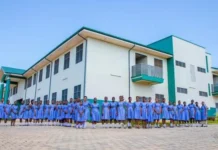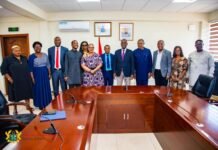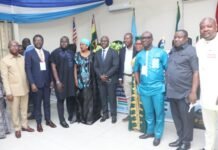The Dean of the School of Communication Studies at Wisconsin International University College, Prof Kwame Karikari, has said BBC’s Sex for Grades documentary is not a good example of journalistic work.
The Founder of Media Foundation for West Africa (MFWA), a media rights and freedoms advocacy organisation, said the methodology used by the BBC in producing the documentary was problematic.
“I have difficulty in accepting that the method of creating a scenario and calling it journalism can be accepted as journalism. I’m wondering if the BBC would apply the same method to subjects in the UK or in Europe or in North America. I have not seen the BBC in its newsroom activities using this method of somebody posing as a journalist, exposing something, and the BBC covering that journalism when it comes to Europeans,” Professor Karikari stated whilst reacting to the issue in a radio interview with Accra based Starr FM on Wednesday [October 9, 2019].
Prof Karikari, respected as an authority on media studies in the academia, is convinced that the method employed by the BBC in producing the documentary will be unacceptable in other parts of the world including the UK, Europe and the USA.
“In other words, the BBC, for instance, sent a letter to the alleged perpetrator in this case, but ordinarily you will consider that either the same journalist or another journalist would show themselves to the perpetrator.
“In investigative journalism, the journalist is known by the subject that the journalist is investigating, in other words, the journalist doesn’t hide. So how come the BBC is saying that they are creating a scenario on one hand and calling it what they claim to be. I have a difficulty for anybody to tell me that, the journalist creates his or her own scenario and reports. In other words in journalism, we do know that what the journalist reports have to be objective to the journalist, it’s not the journalist’s own creation that the journalist report and tells you that, that is news,” he said.
The documentary produced by the BBC Africa Eye and aired on Monday, October 7, 2019, shows alleged cases of sexual harassment at the University of Lagos and the University of Ghana.
The BBC sent female undercover reporters to the campuses of the two universities where it reported that they were sexually harassed, propositioned and put under pressure by senior lecturers – all the while wearing secret cameras.
Two lecturers at the University of Ghana, Professor Ransford Gyampo and Dr Paul Kwame Butakor, shown in the documentary and accused of engaging in sexual harassment on campus have since been interdicted by the university.
The BBC has said it picked reports from students who have been victimised in similar scenarios in relation to the subject matter in the hands of the same lecturers [Gyampo and Butakor] mentioned in the documentary.
In the view of Prof Karikari said, “every investigative journalist starts from some information they get, about something that may have happened, and then they start the investigation.”
He added: “In this case, how many of the actual victims did they interview, in other words, how many of the people who have been so abused, could have been interviewed by the reporter, and that reporter would have done a good job…, however the journalism of it could have been better than what I’ve seen.”
Asked if Africa has become a soft target for international media houses in the usage of this kind of methodology in journalism, Prof Karikari responded: “well in Africa, anything goes so far as the West is concerned…anything goes, not only the West, but most parts of the world, China, bigger Asian societies, because we ourselves are not working hard enough to pick ourselves from the ground and also be properly counted.”
Discover more from EducationGhana
Subscribe to get the latest posts sent to your email.























